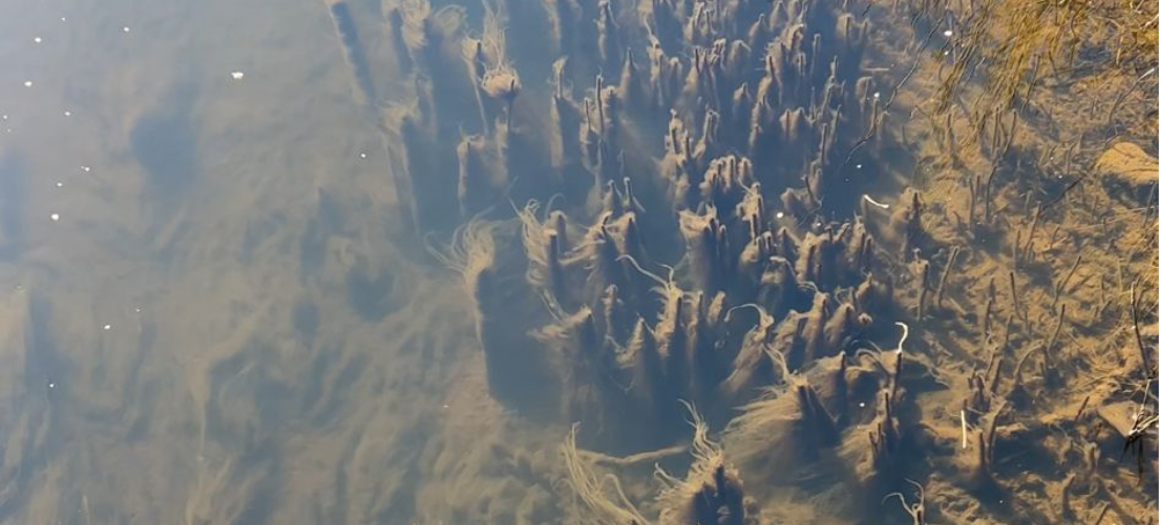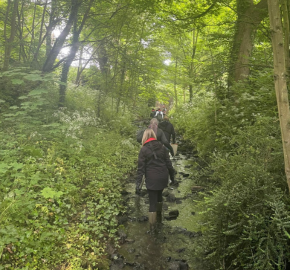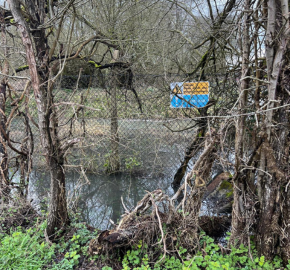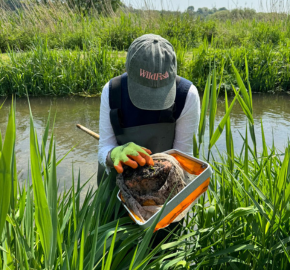SmartRivers reveals worrying loss of riverfly species in Windermere

A new report published today by WildFish and Save Windermere reveals that the health of every single river sampled in the Windermere catchment was found to be impacted by United Utilities wastewater treatment works with reductions in riverfly species of up to 76%.
Sewage, both treated and untreated, poses arguably the greatest threat to the health of the rivers and lakes in the Windermere catchment, an area of national ecological importance and home to several species facing dramatic declines including the now-endangered Atlantic salmon. Since 2020, United Utilities has discharged untreated sewage into the Windermere catchment for over 18,000 hours.
The data, collected by SmartRivers volunteers, shows that the abundance of pollution-sensitive riverfly species was found to be particularly impacted below (when compared with above) United Utilities’ wastewater treatment works. The River Rothay, Cunsey Back and Wilkin Beck all flow into Lake Windermere and all showed stark reductions in riverfly species.
- River Rothay: average 64% reduction below the Ambleside wastewater treatment works storm overflow pipe.
- Cunsey Beck: average 76% reduction below Near Sawrey wastewater treatment works.
- Wilfin Beck: average 75% reduction below Far Sawrey wastewater treatment works.
The number of invertebrates recorded below the wastewater treatment works on these rivers were found to be as low as two individuals compared with hundreds upstream of the works.
The first year of data collected by the Windermere SmartRivers volunteers is very concerning and provides solid evidence for WildFish and Save Windermere to continue lobbying United Utilities and the Environment Agency to ensure urgent action is taken to stop sewage, treated and untreated, from destroying the Windermere catchment including Lake Windermere, England’s largest lake.
This report has highlighted the need for continued high quality, independent data collection on rivers in the Windermere catchment.
Janina Gray
Deputy chief executive
SmartRivers is the invertebrate monitoring programme run by WildFish which offers volunteers the highest level of river monitoring. In 2023, Matt Staniek, director of Save Windermere, founded a SmartRivers hub in the Windermere catchment to address concerns about the lack of independent monitoring on rivers downstream of United Utilities assets. The hub’s sample sites are selected to assess the impact United Utilities is having on the rivers that flow into the lake.
READ THE REPORT



Re. Windermere; Are you aware of the vast number of bream now in the lake? I’d bet money that there is a greater biomass of fish in the lake than ever in its history. Pike and Perch will predate on the young of the bream and should continue to thrive. Please don’t undermine your worthy campaigning by ignoring a fact that undermines a message that the lake is dying. The problem is that this is the wrong species of fish for glacial lakes.